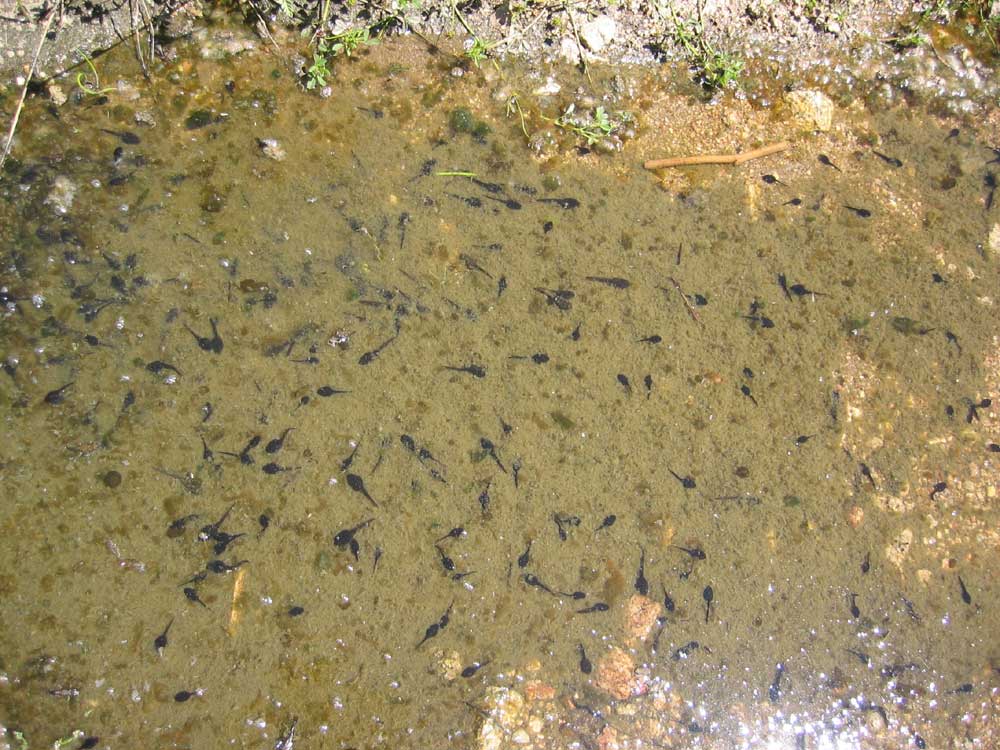
Yellow Jacket Trail and Vernal Pools
(25th June, 2005)
Photos from a hike with the Sierra Club in the Lockwood Valley along a trail called Yellow Jacket (7N15), which goes past a series of four Vernal pools. These pools have a regular wet to dry cycle which supports a wide variety of plant and animal life adapted to living in this special type of environment. The Yellow Jacket Trail is in the shadow of Lockwood Peak (6261 feet) - see map below.

Tadpoles abound in the Vernal Pools........
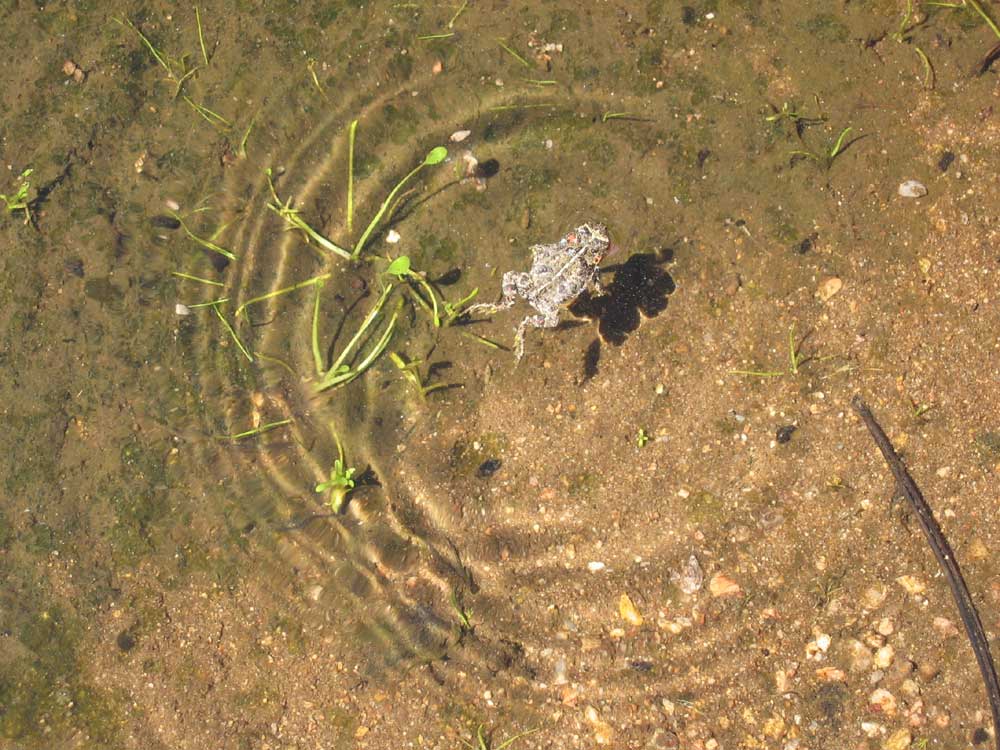
........and ultimately frogs
What exactly is a Vernal Pool? Vernal pools are seasonally flooded depressions found on ancient soils with an impermeable layer such as a hardpan, claypan, or volcanic basalt. The impermeable layer allows the pools to retain water much longer then the surrounding uplands; nonetheless, the pools are shallow enough to dry up each season. Vernal pools often fill and empty several times during the rainy season. Only plants and animals that are adapted to this cycle of wetting and drying can survive in vernal pools over time.
These specialized plants and animals are what make vernal pools unique. As winter rains fill the pools, freshwater invertebrates, crustaceans, and amphibians emerge. Vernal pool plants sprout underwater, some using special floating leaves and air-filled stems to stay afloat. Some of these plants even flower underwater! Birds arrive to feed on the vernal pool plants and animals.
In spring, flowering plants produce the brightly-colored concentric rings of flowers that vernal pools are famous for. Native bees nest in vernal pools and pollinate pool flowers. Insects and crustaceans produce cysts and eggs, and plants produce seeds that are buried in the muddy pool bottom. The mud protects cysts, eggs, and seeds from the hot, dry Central Valley summer. By late summer, amphibians have dug deep into the soils and gone dormant, awaiting the next rainy season. Vernal pools have completely dried out and most of the plant and animal species have either disappeared into the soils or set seed and died. In this phase, vernal pools are really "banks" full of resting seeds, cysts, and eggs that can survive through summer, and even extended droughts, until the onset of the rains begin the life cycle anew.
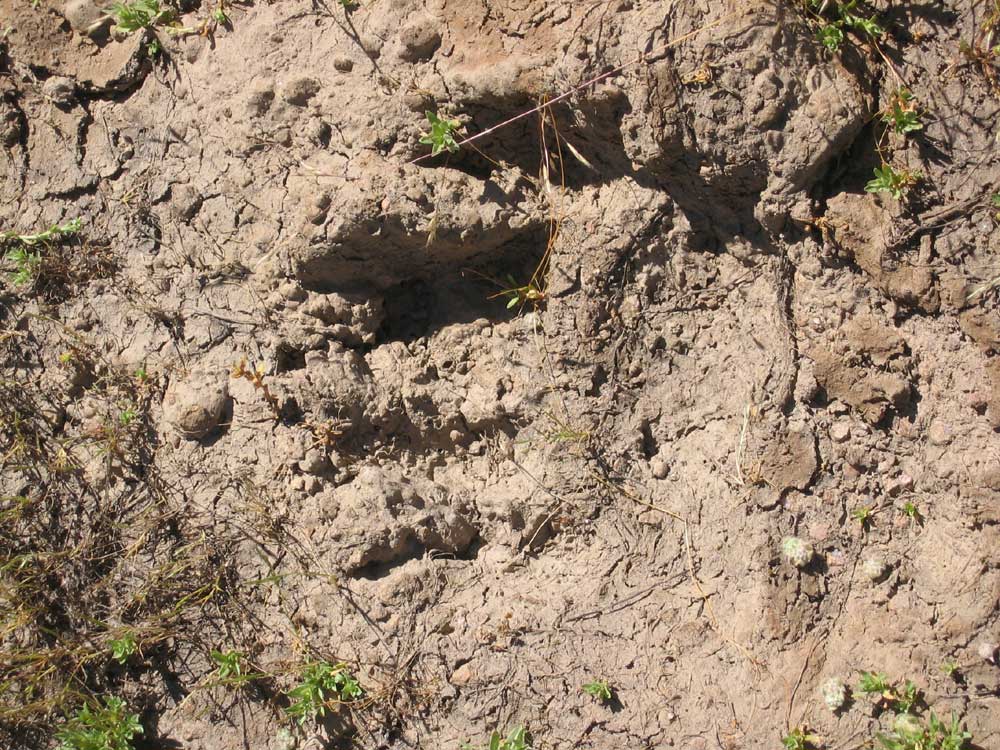
As Vernal Pools dry up they can become rather muddy around the edges leaving the footprints of many animals drawn to the area. There can be little doubt that there are bears in this neck of the woods! The Vernal Pools are sometimes loosely referred to as "Bear Pools". This, and the following photographs, show why..........
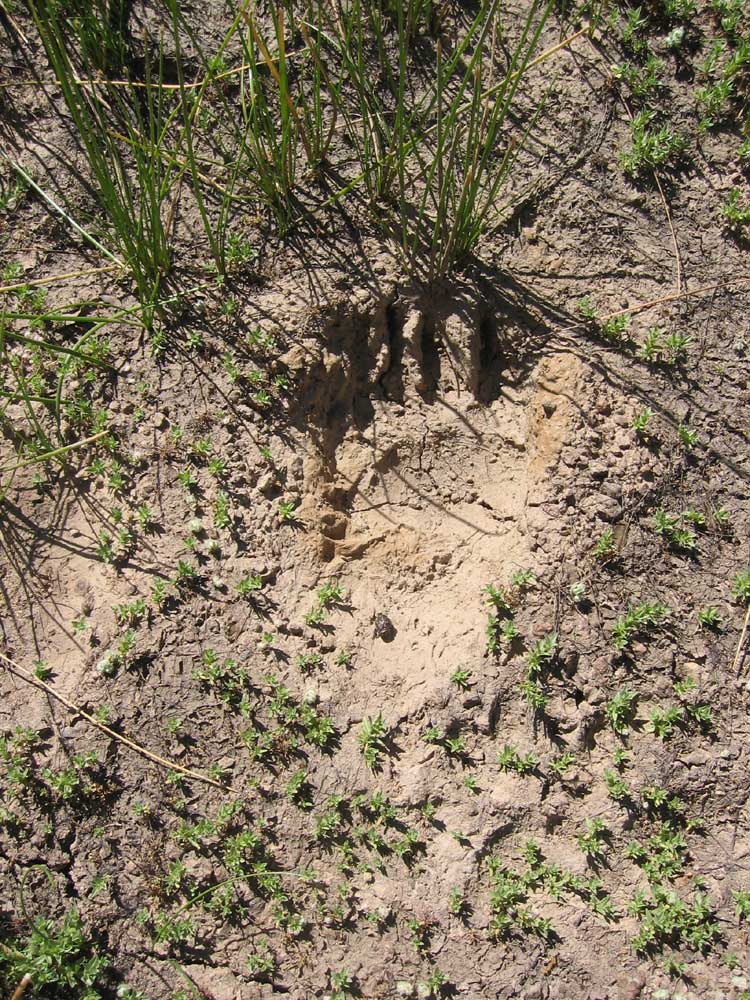
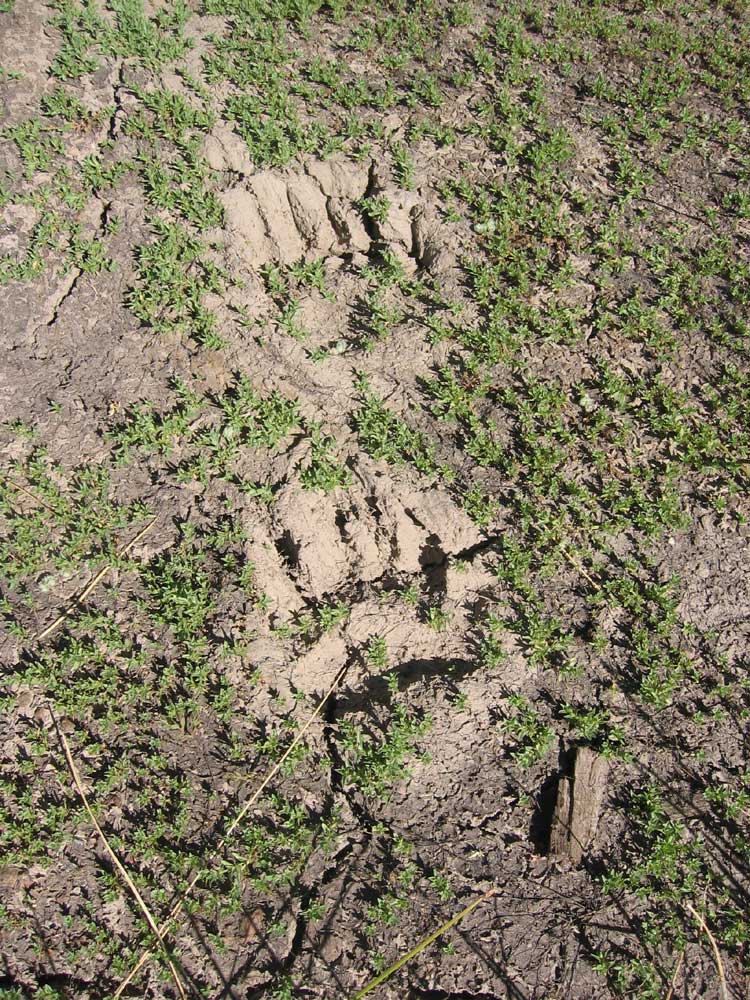
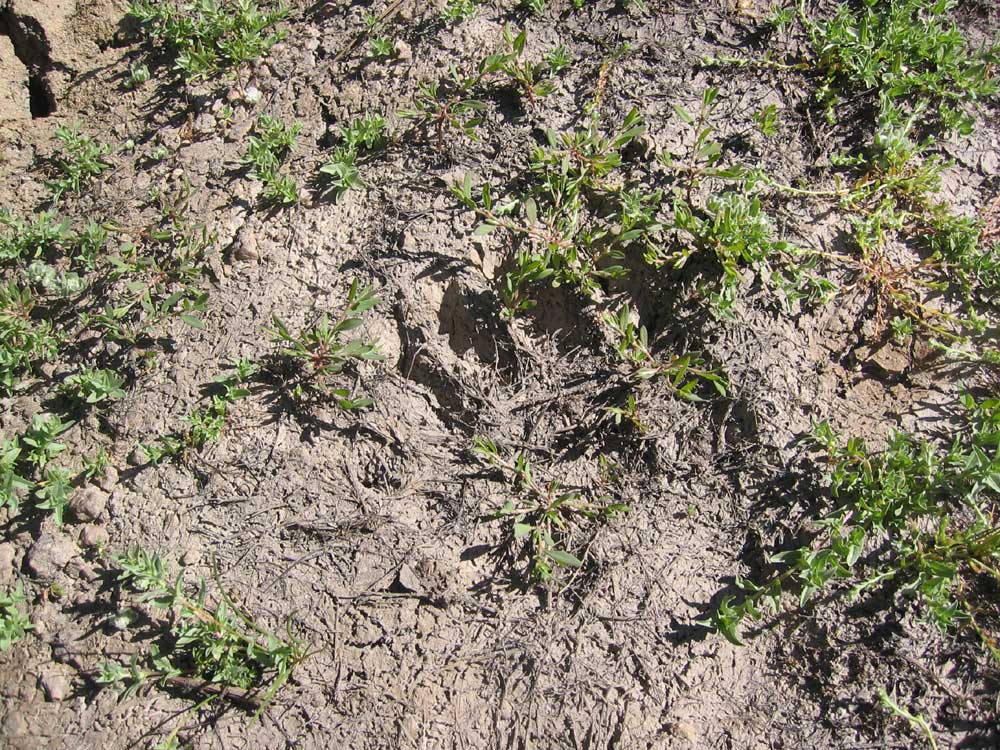
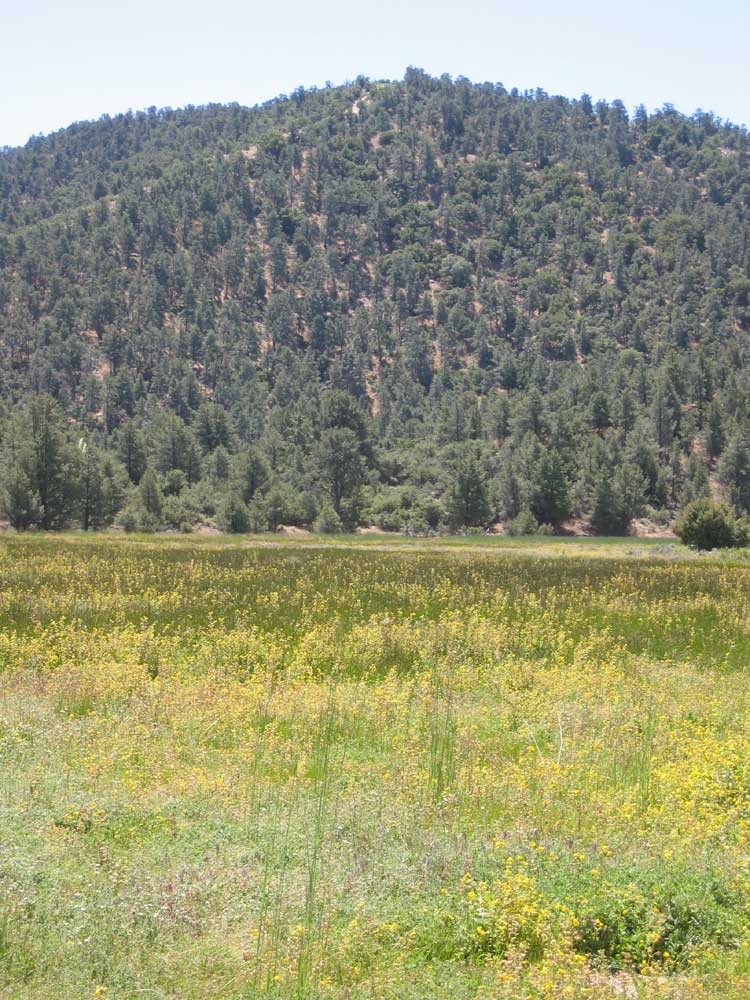
Vernal Pools can be much larger than you might imagine - this is Vernal Pool #4
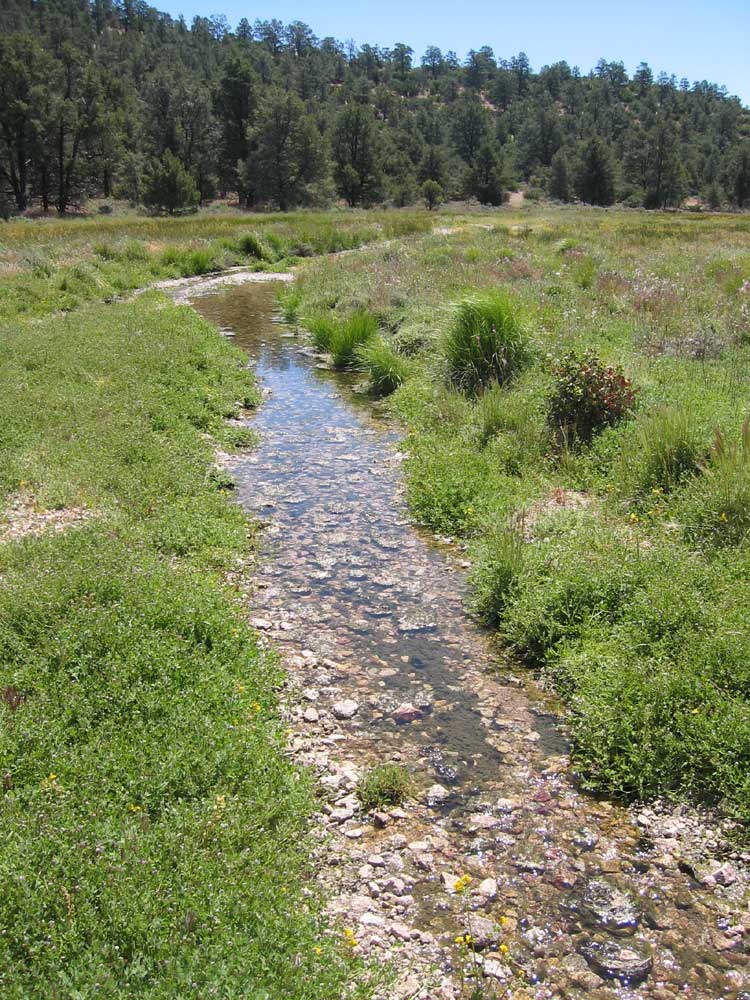
Vernal Pool #4.
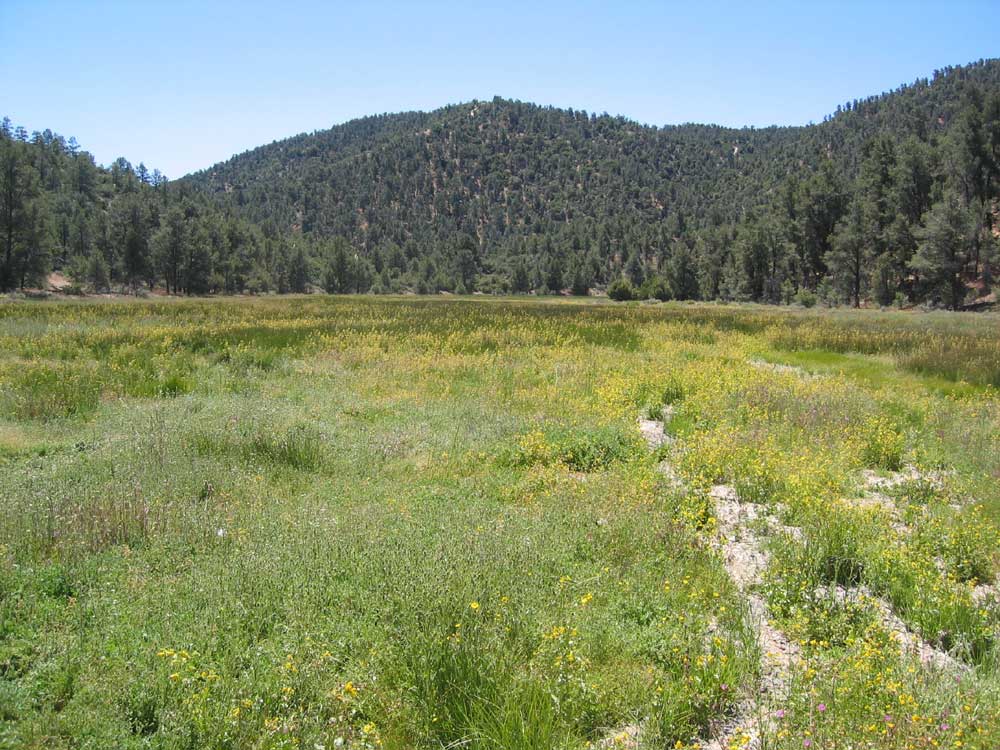
Vernal Pool #4.
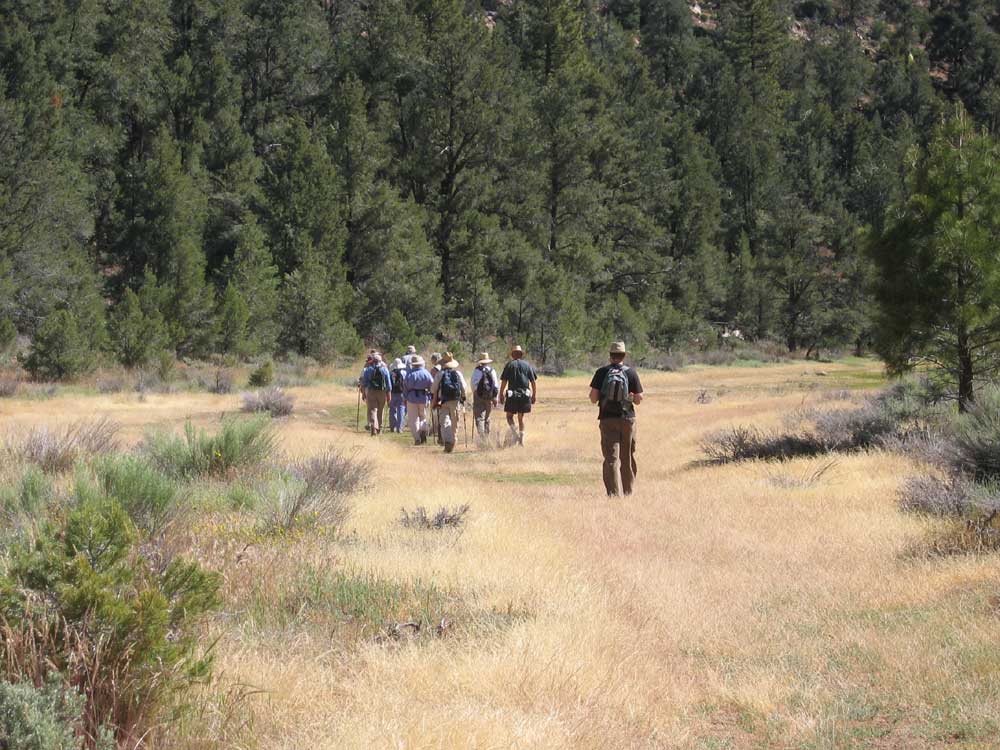
Approaching the first Vernal Pool (#1).
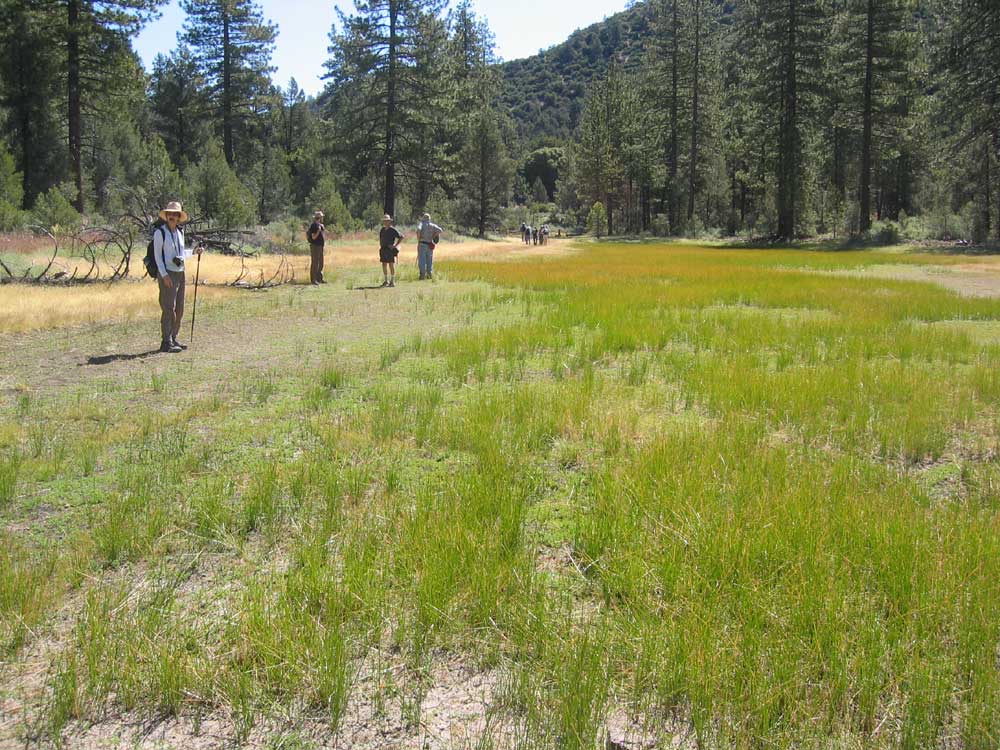
Vernal Pool #1.
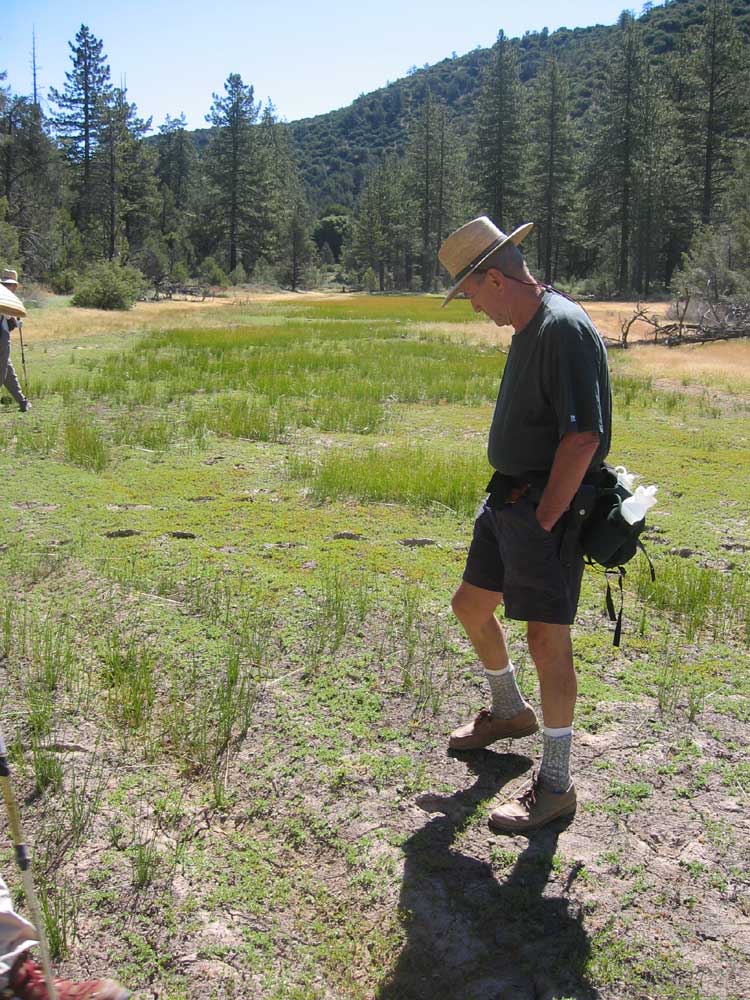
Vernal Pool #1.
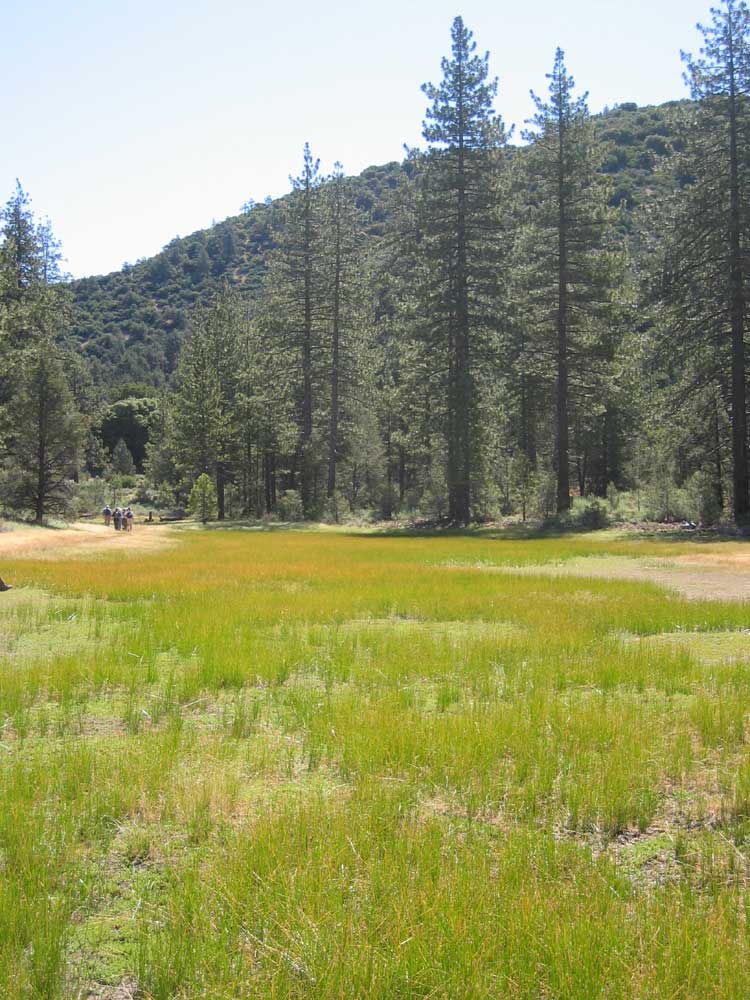
Vernal Pool #1.
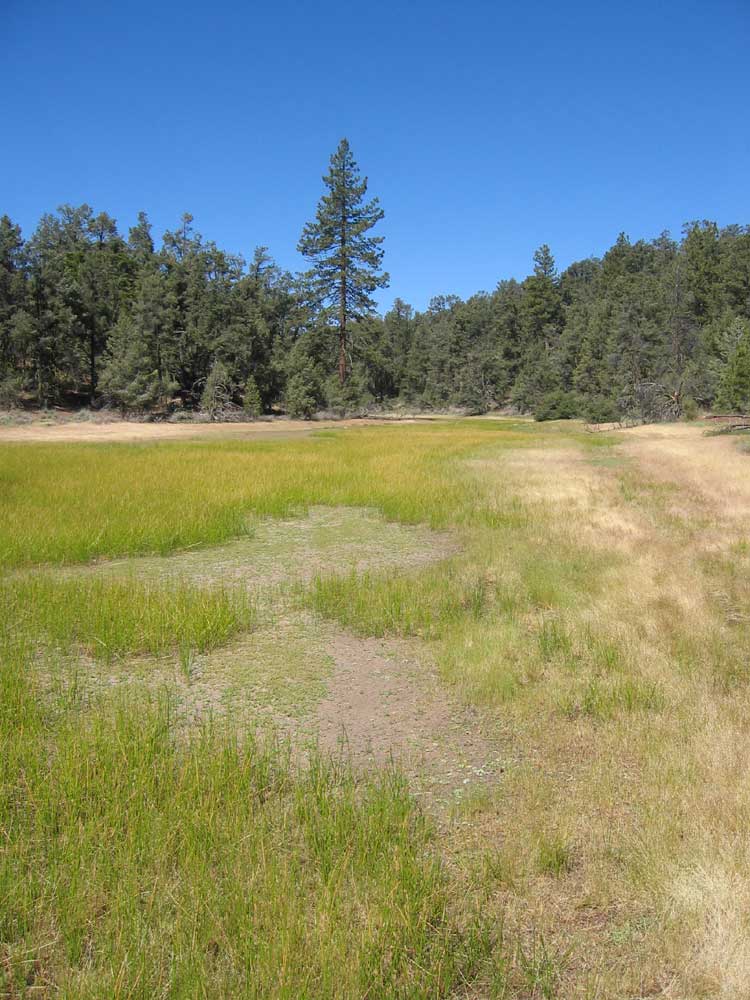
Vernal Pool #1.
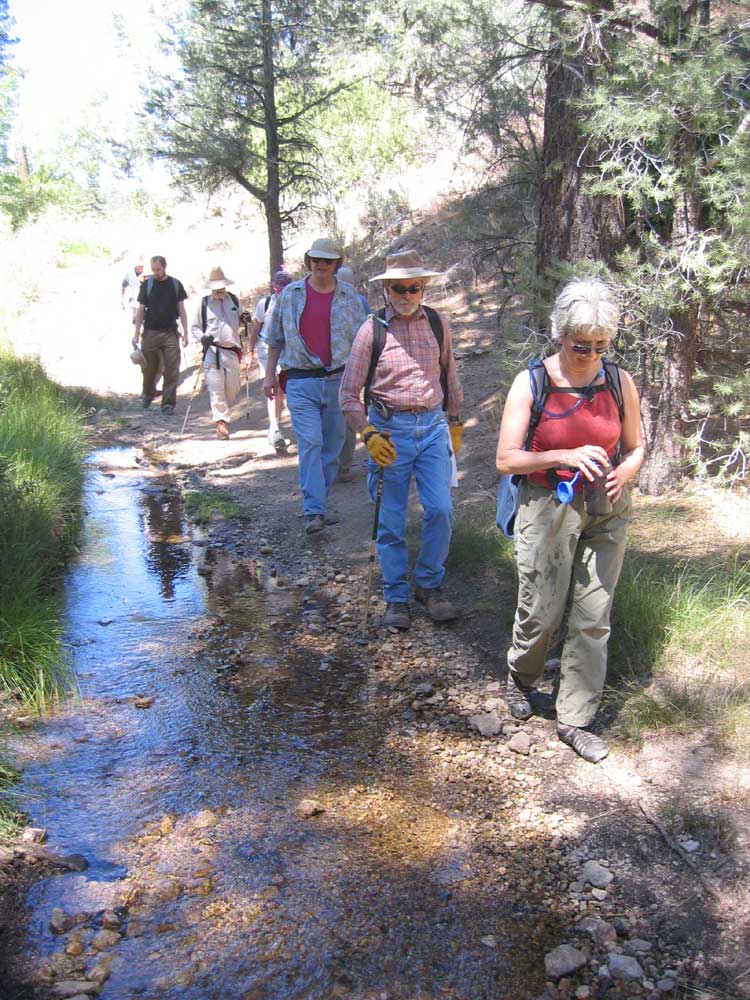
Sierra Club Hikers crossing between the Vernal Pools.
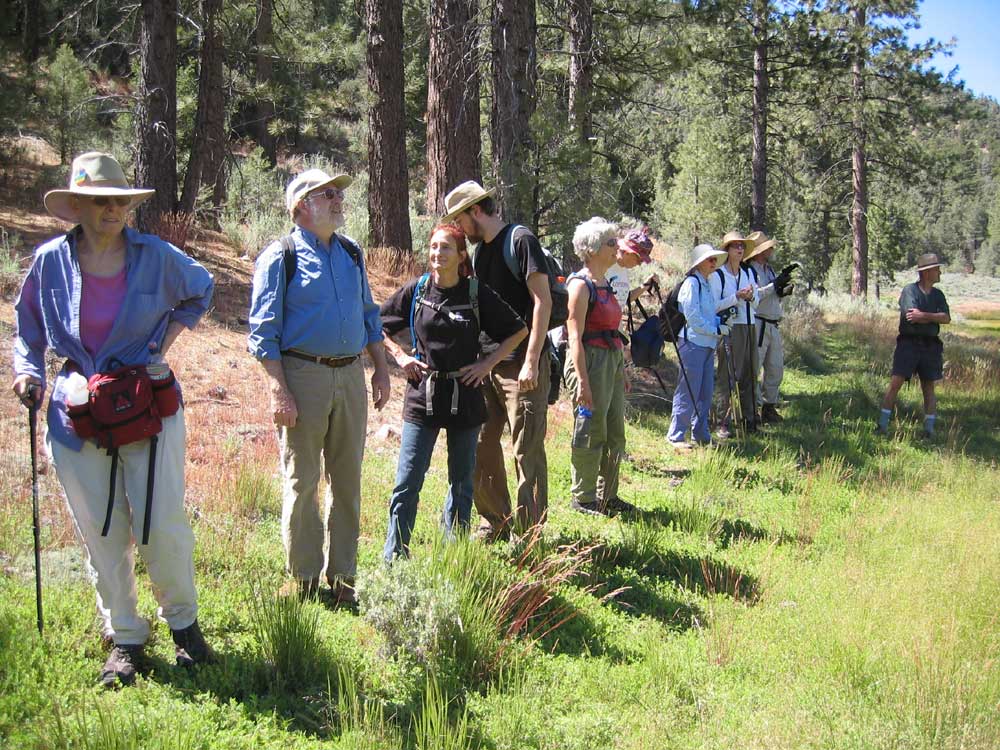
Hikers looking out over Vernal Pool #3.
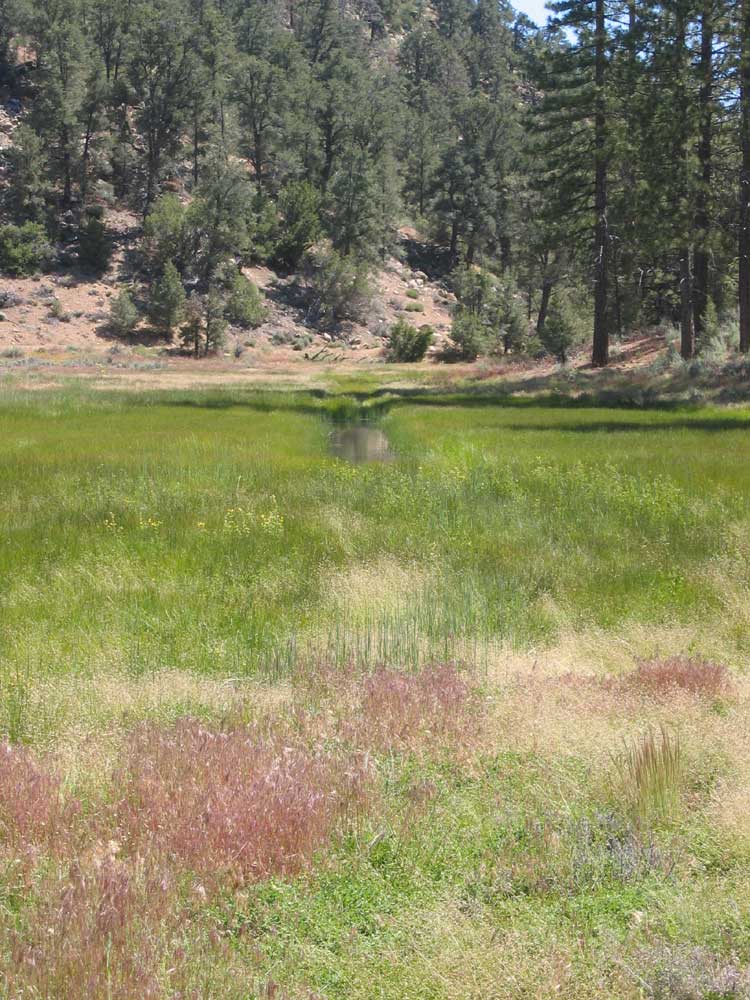
Vernal Pool #3. Note the wheel ruts going across this delicate ecosystem......
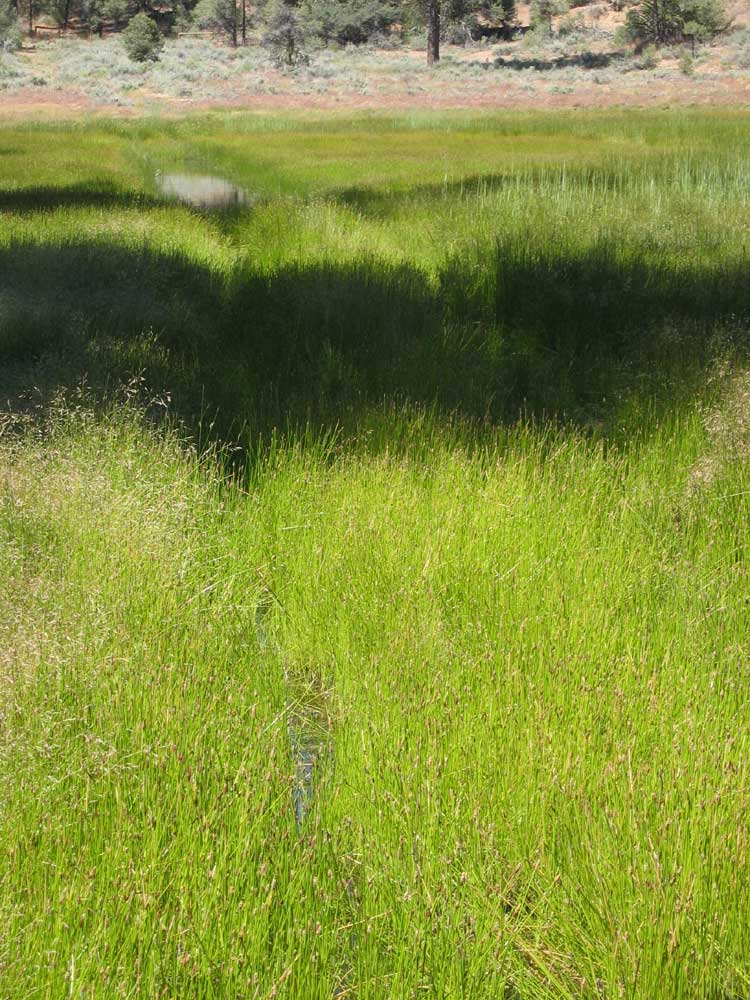
......and here is a closer view of the wheel ruts going across Vernal Pool #3.
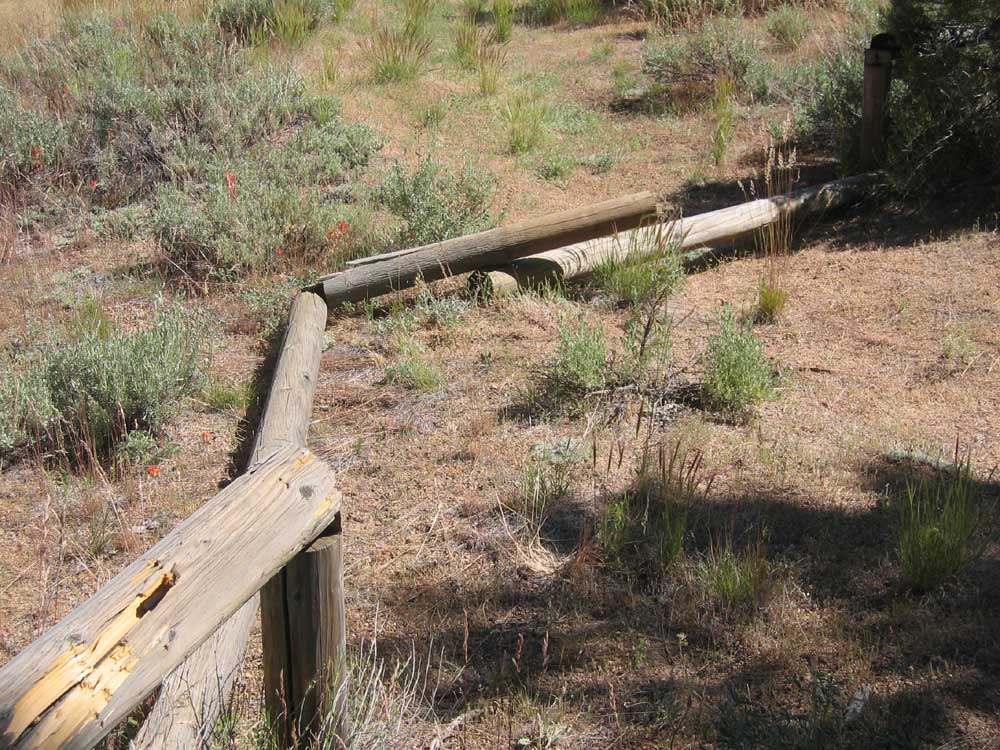
The Vernal Pools are situated along side an official OHV trail. Wooden barriers are meant to protect the pools from motor bikes, jeeps, ATV's etc., but they do little to nothing to restrict vehicular access to these areas! Here are the GPS coordinates for this damaged fence leading to Vernal Pool #1 = N 34 degrees 42.289 minutes - W 119 degrees 05.116 minutes.
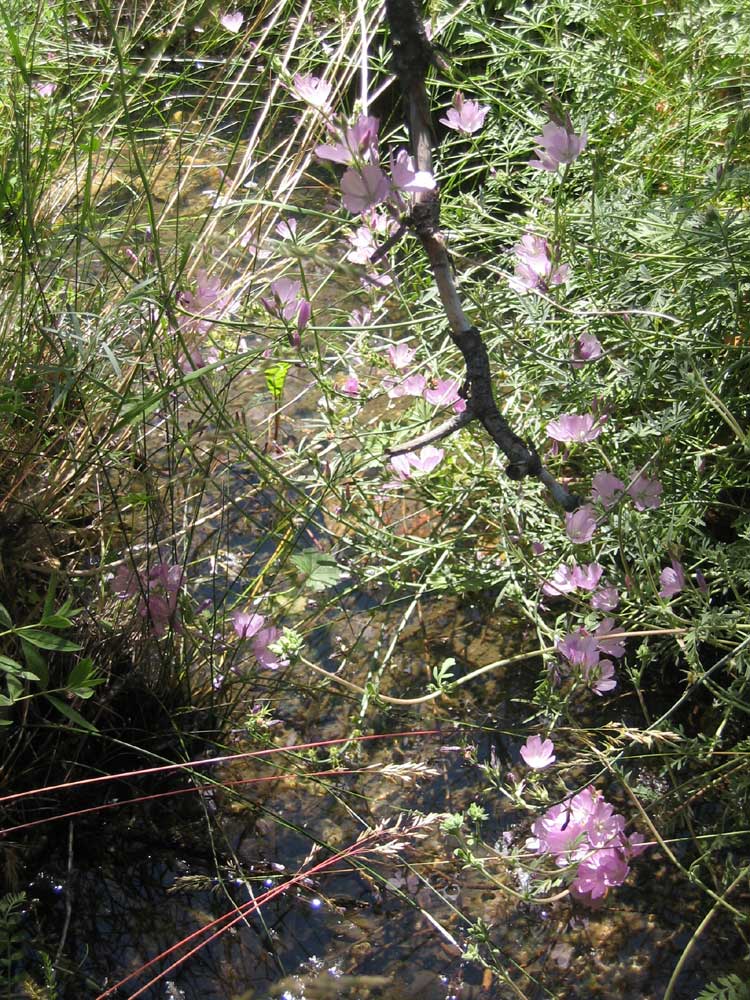
Species Clarkia(?) growing over a stream near Vernal Pool #4.
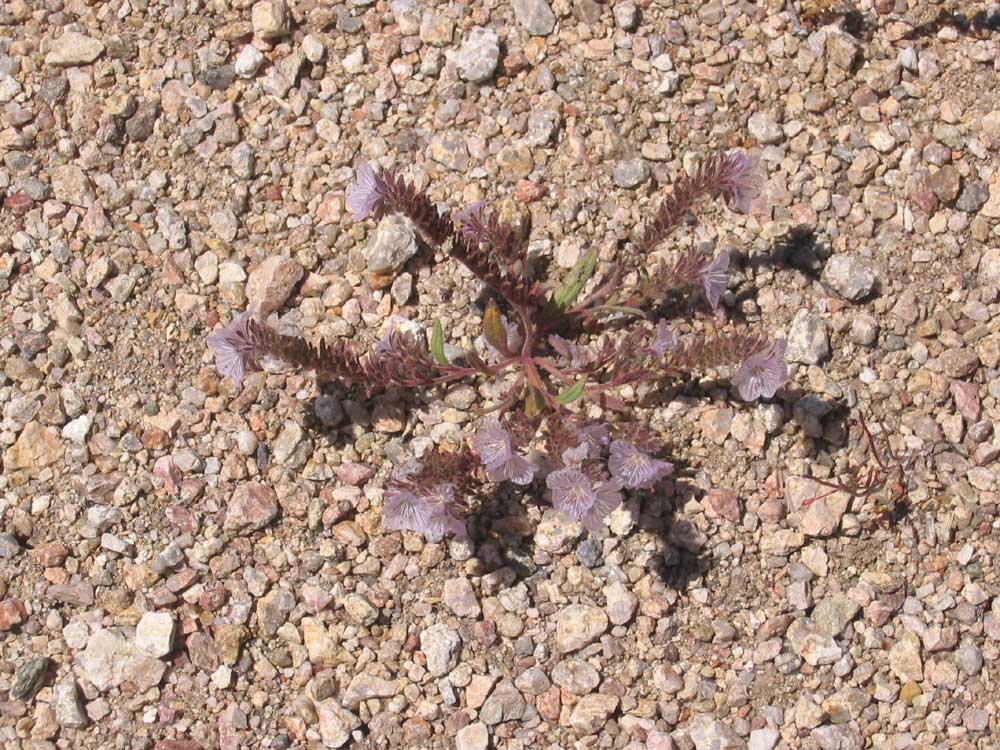
Species Phacelia(?) growing on a gravel bed within Vernal Pool #4.
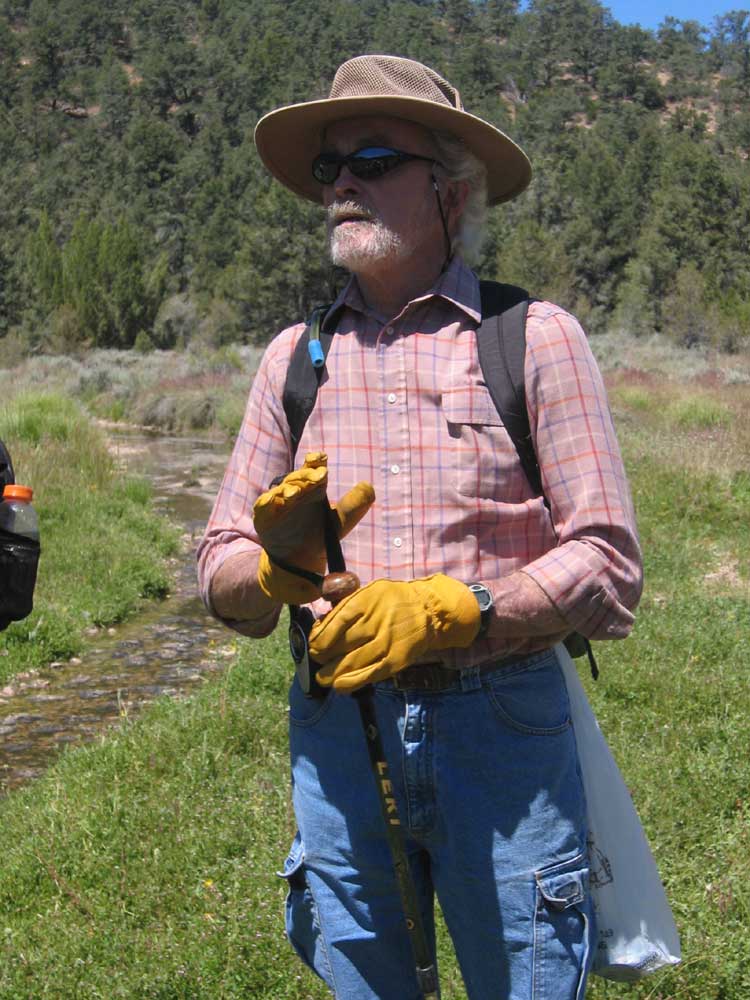
The hike leader, Dale Chitwood (1930 - 2011), surveys Vernal Pool #4.
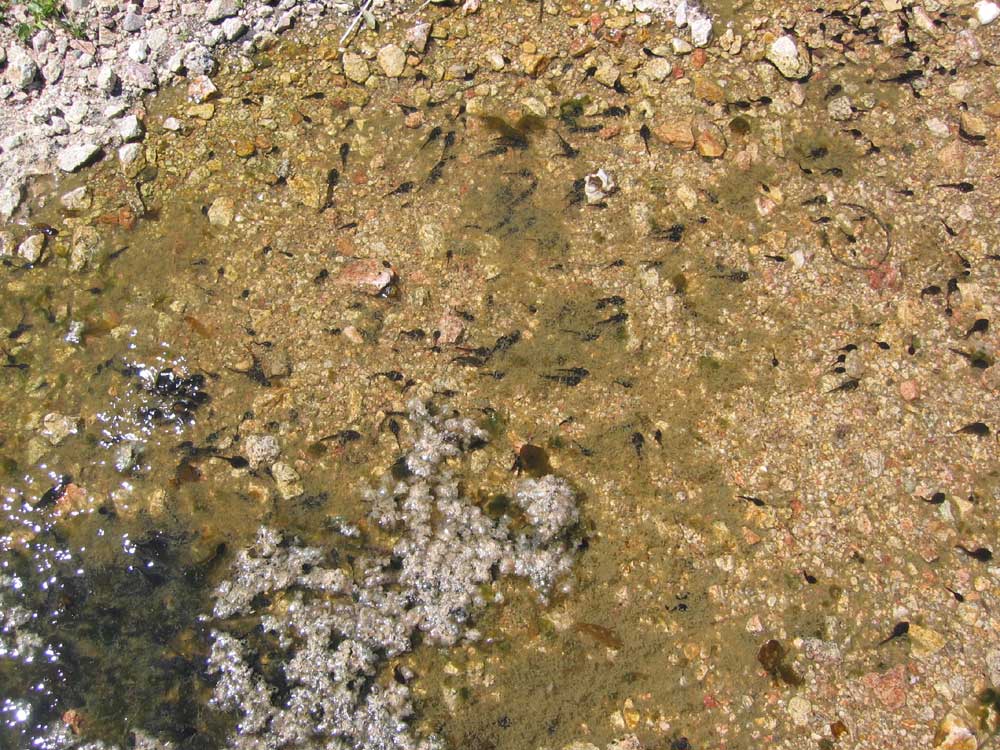
There was large numbers of tadpoles in Vernal Pool #4.
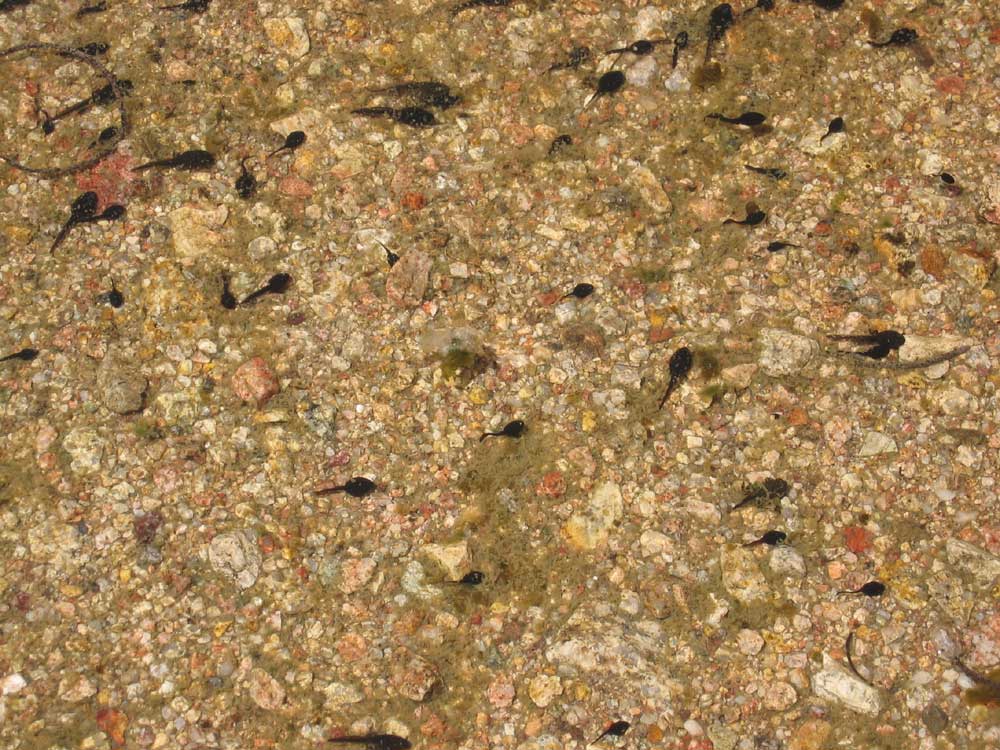
Tadpoles in Vernal Pool #4.
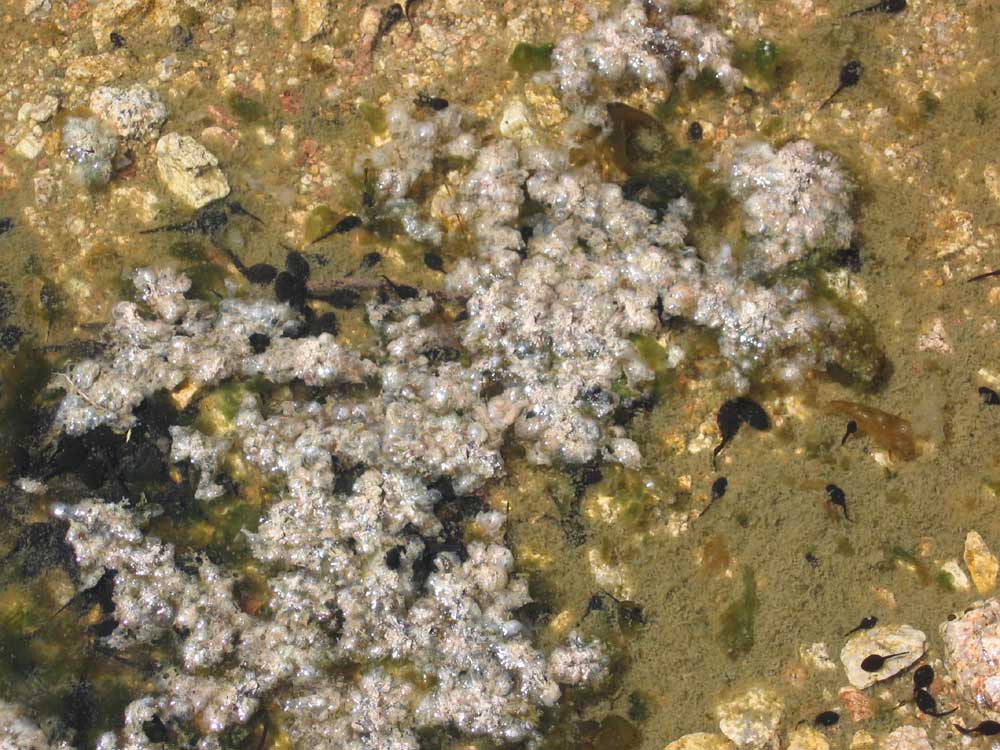
Tadpoles in Vernal Pool #4.
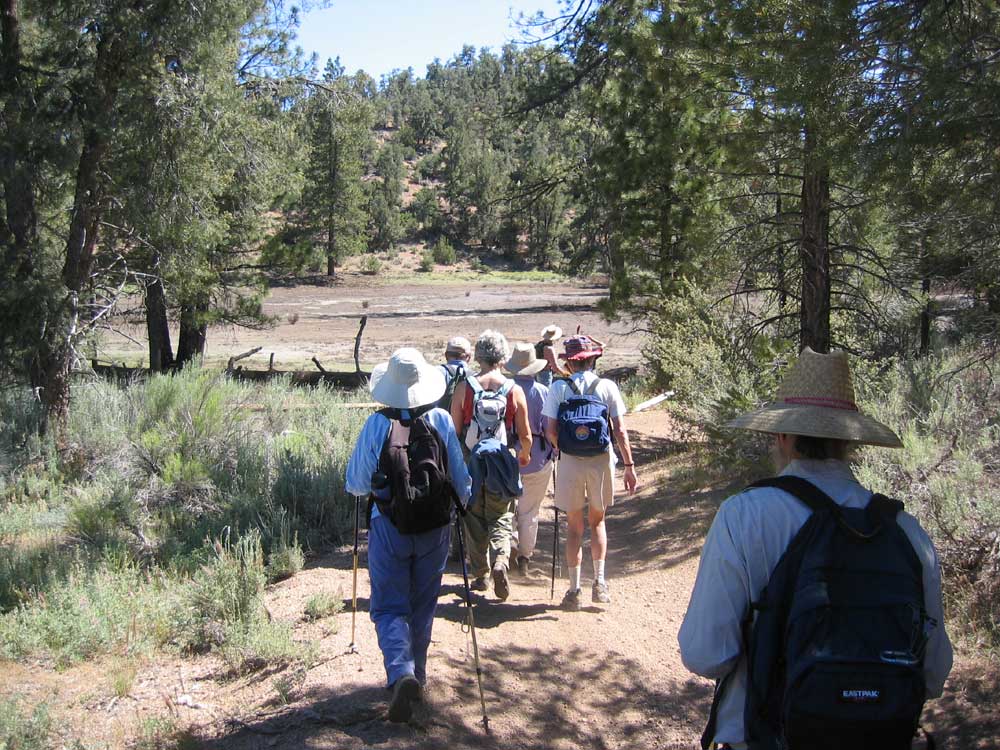
Now for something completely different. The hikers approaching Vernal Pool #2. Something has gone very seriously wrong here......
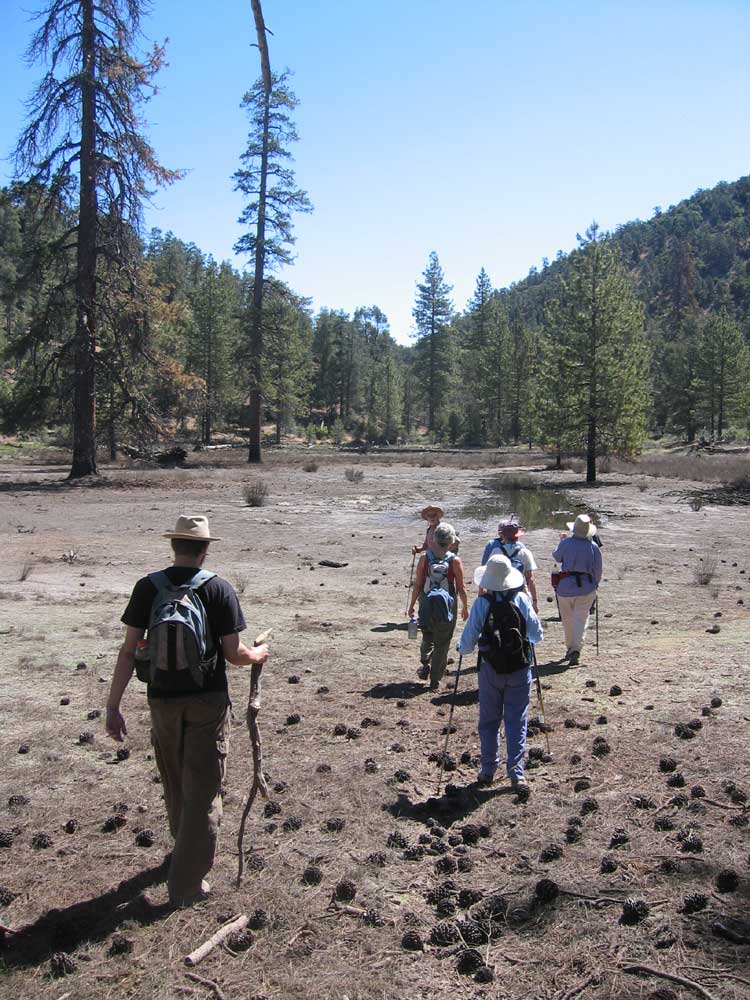
The whole area is completely dead (or dying)!!!
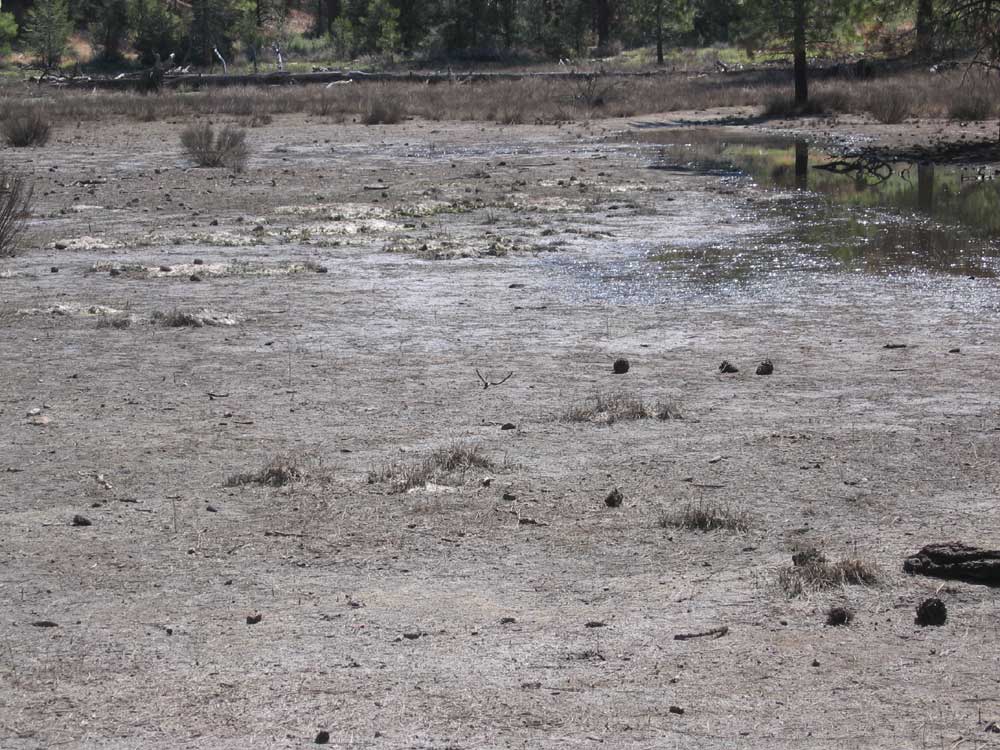
It seems that the water and/or ground in this Vernal Pool has been poisoned for reasons unknown at this stage. An investigation into the cause is promised by Forestry officials.......
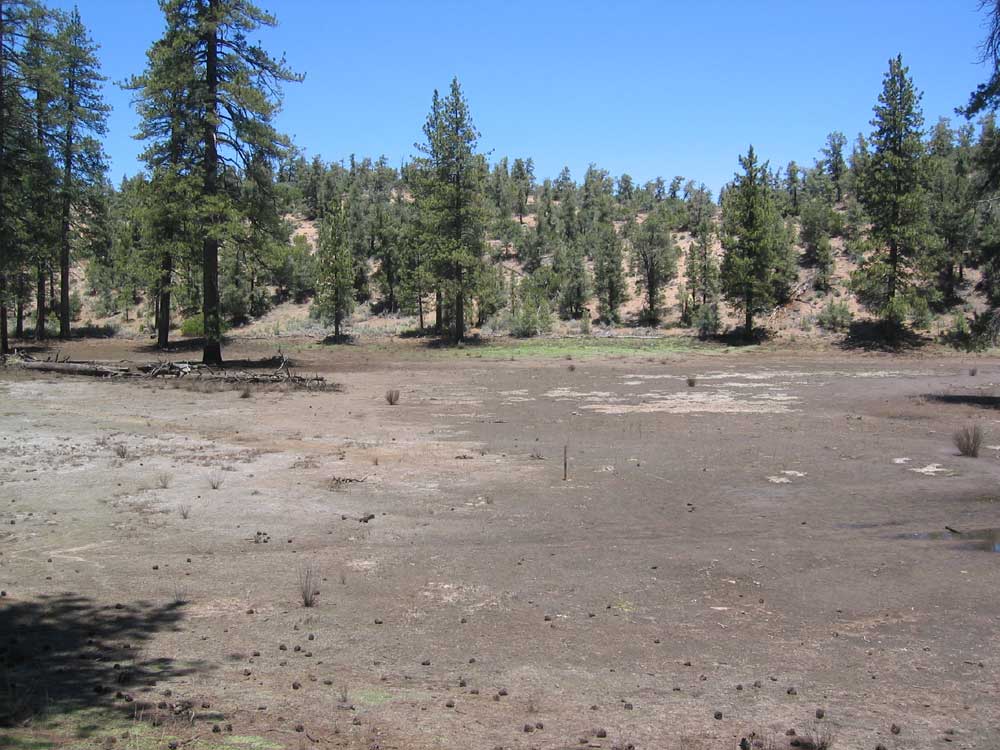
These pictures speak for themselves........
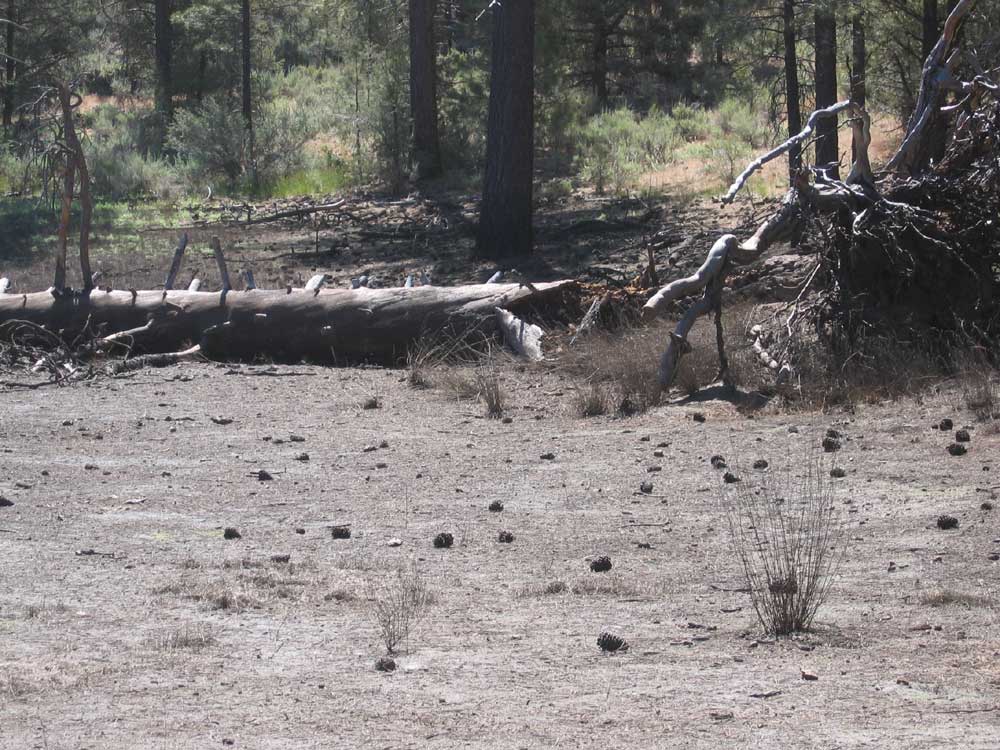
The GPS coordinates for Vernal Pool #2 are N 34 degrees 42.697 minutes - W 119 degrees 04.689 minutes.
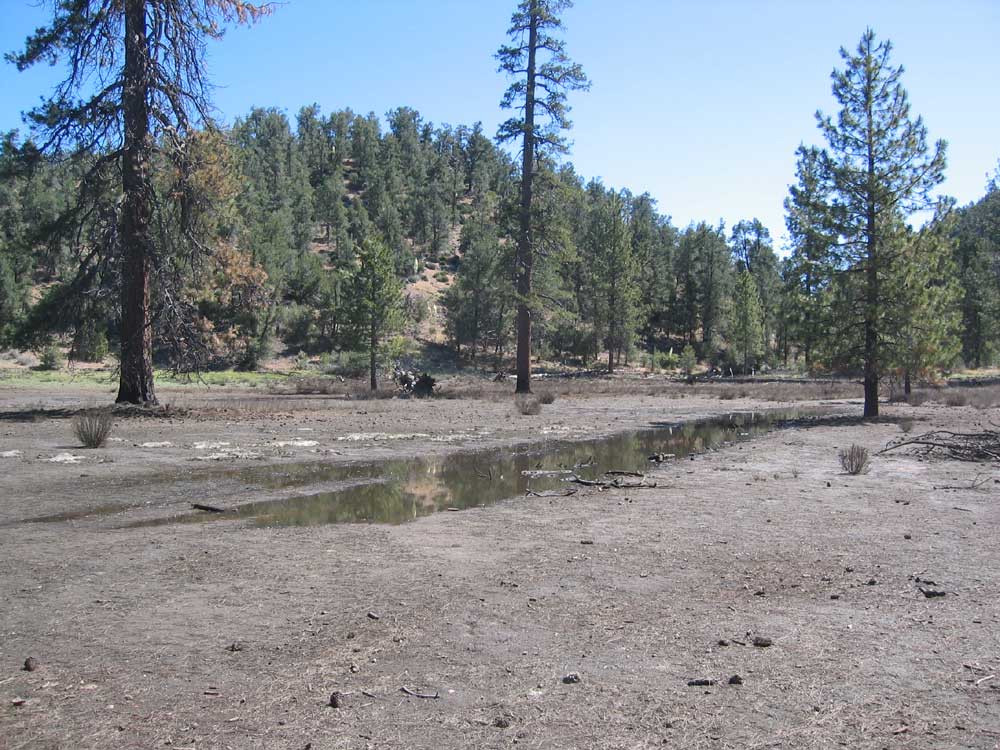
Vernal Pool #2.
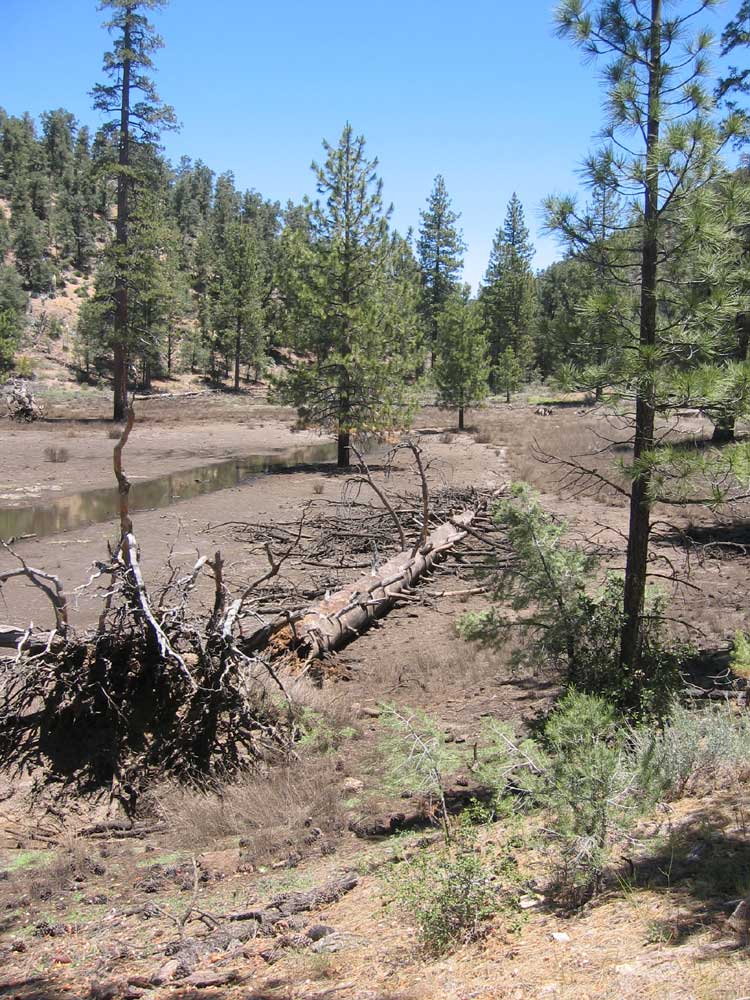
Vernal Pool #2.
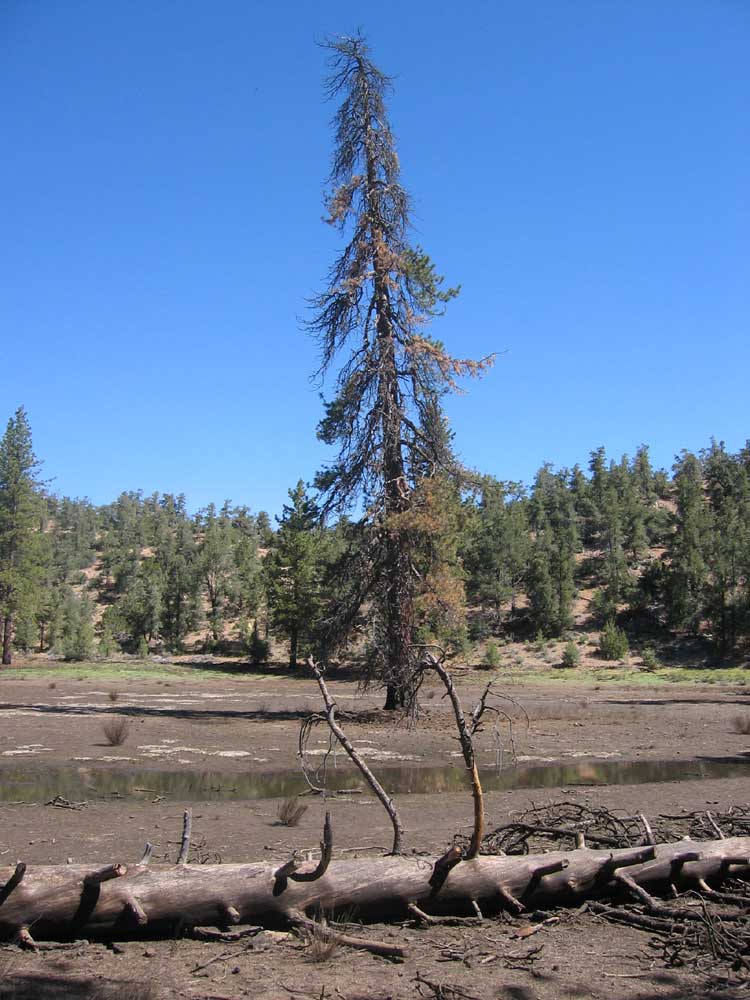
Vernal Pool #2.
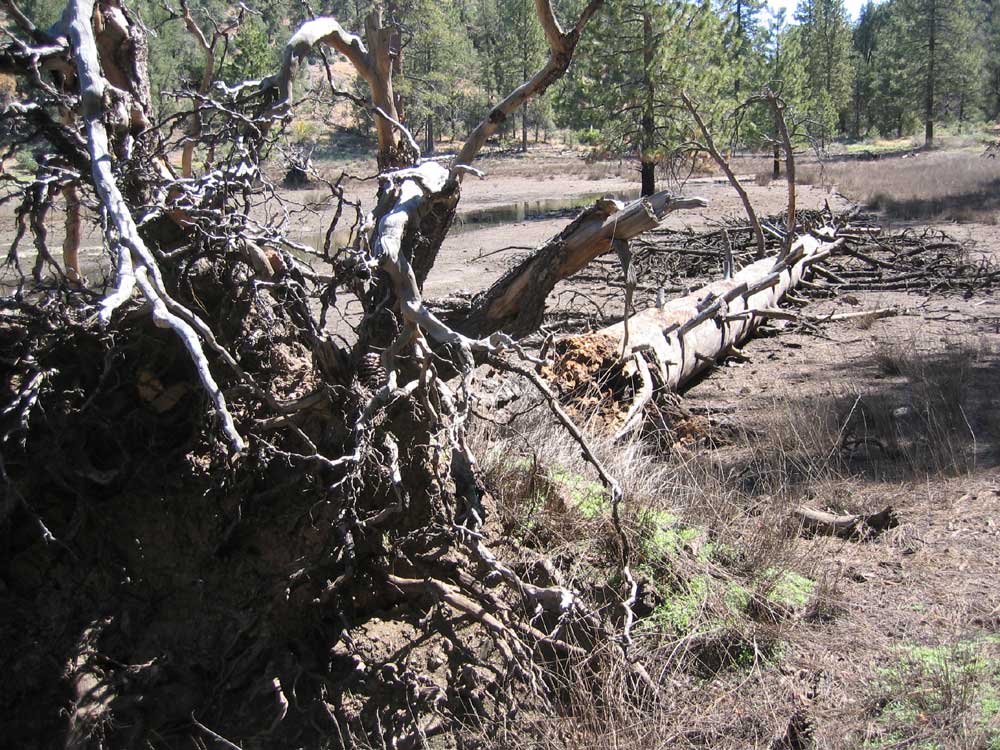
Vernal Pool #2.
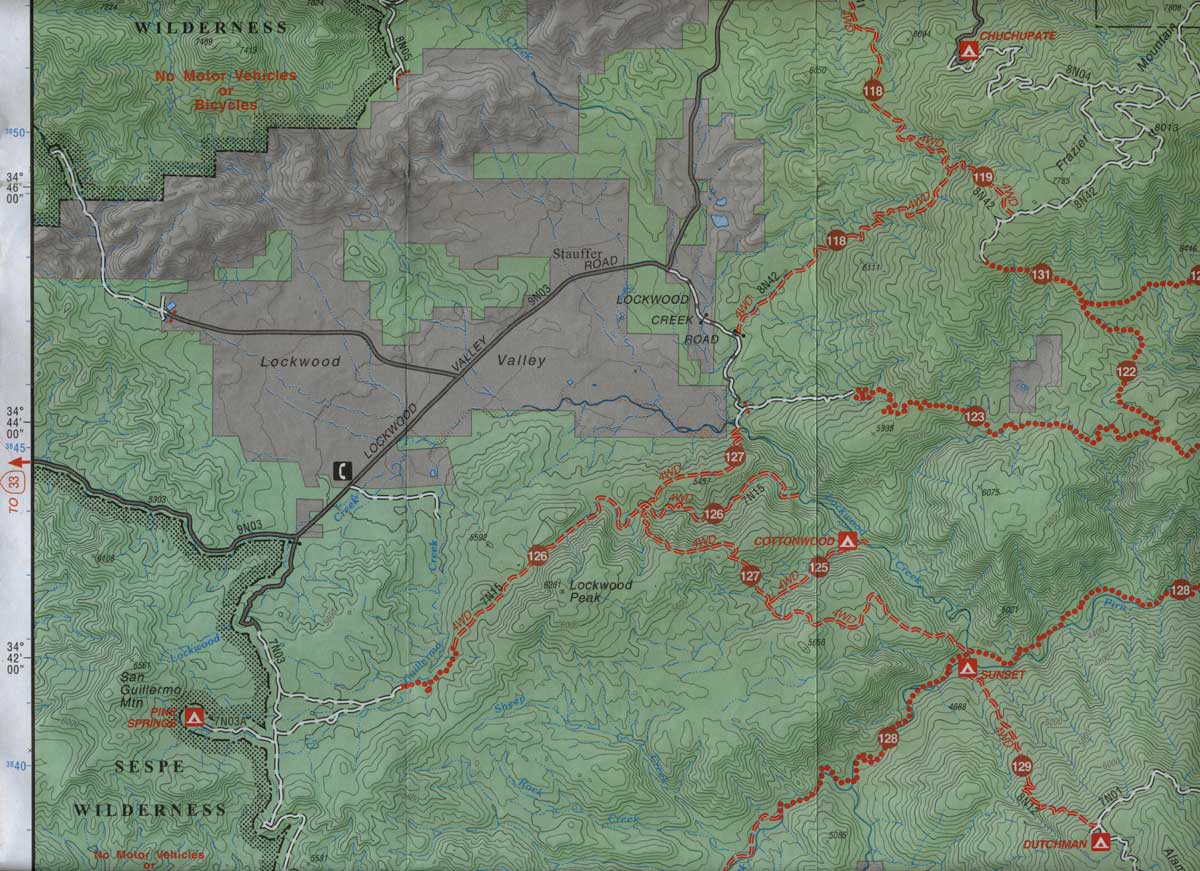
Here is a map to help in finding the the Yellow Jacket trail head. It is indicated on this map as road 7N15 or Off-Highway Vehicle Trail #126. It is easiest to walk the Yellow Jacket trail from a south-west starting point heading in a north-easterly direction. Starting from the south-west end of the trail is also the closest access point to the Vernal Pools (which are numbered from #1 to #4 above, heading in a north-easterly direction). Access to the trail head is from Lockwood Valley Road by turning onto road 7N03 which is sign posted (see below) and then turning left onto road 7N15.
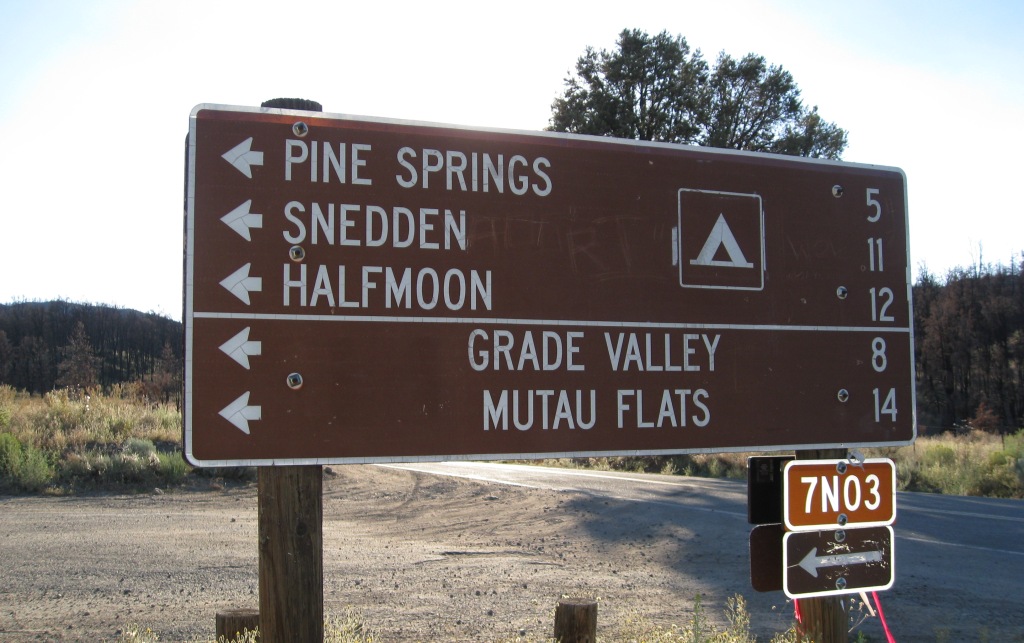
Look out for this sign to Mutau Flats.
![]()
Peter Gray
telephone: +1 (661) 242-1234